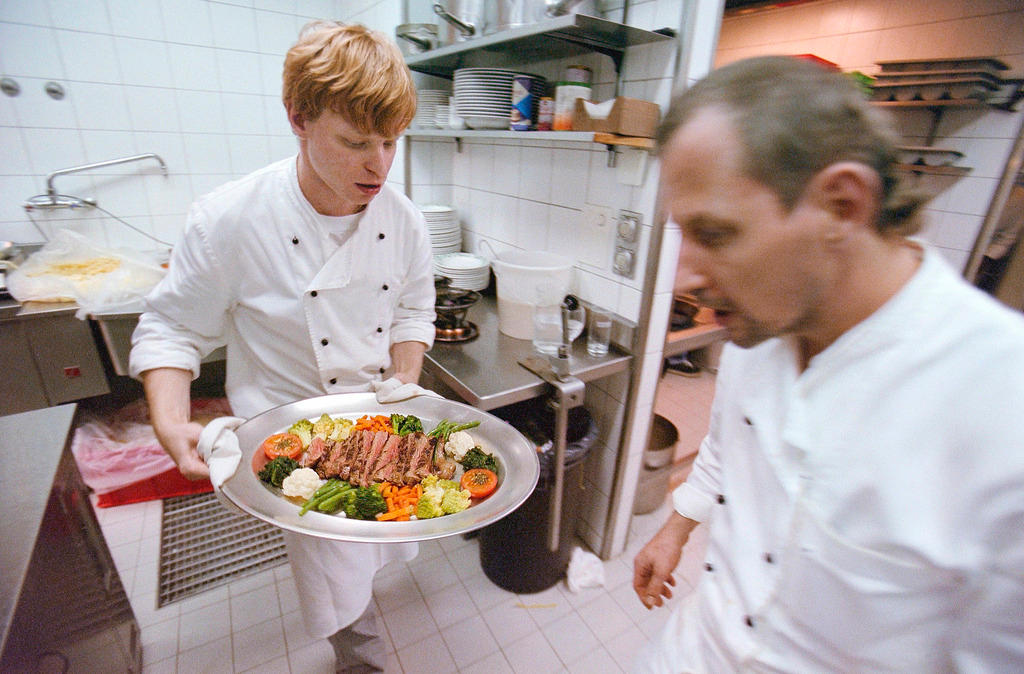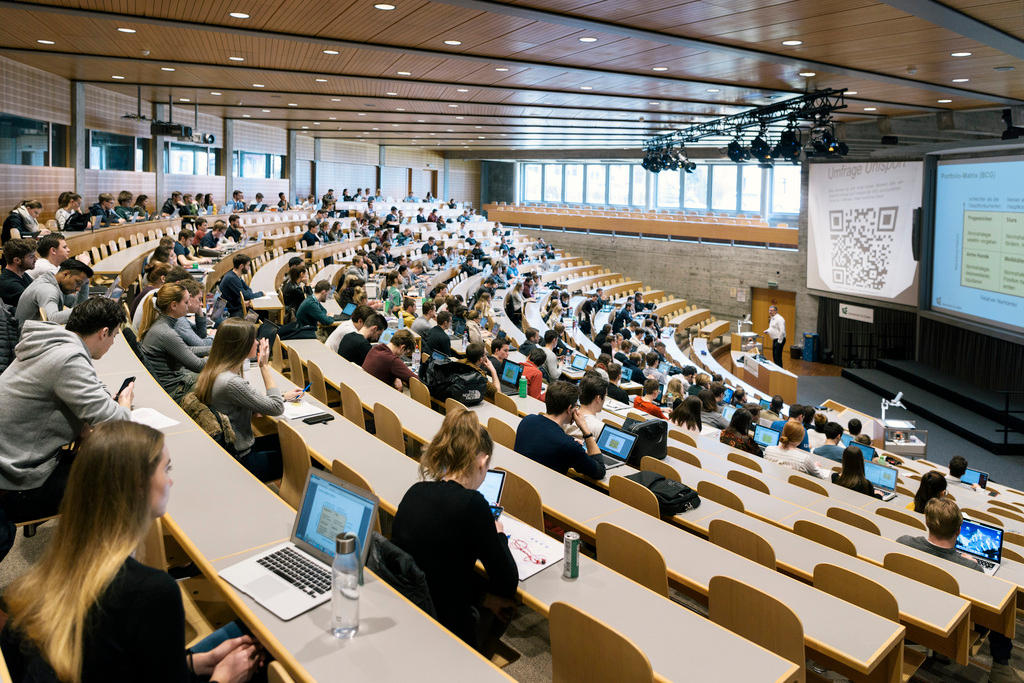Is part-time work viable while studying at a Swiss university?

With one of the highest living expenses in the world, Switzerland can be a drain on the finances of international students. We compare the potential for part-time work with the US and UK.
In our previous article we compared the cost of living for university students in Switzerland, UK and US and offered a few money-saving tips. However, it is not always possible to cut corners. Expenses like accommodation, food and transport can be minimised but not eliminated. What is a student to do?

More
How expensive is Switzerland for a student on a budget?
Part time work is one option to tilt the financial balance in your favour. However, there are several things to consider: whether international students are allowed to work, class schedule, coursework and assignment load, flexible working hours, and minimum wage. Some institutions like the Federal Institute of technology in Lausanne (EPFL) counsel against taking up a job as it could interfere with studies. “With a weekly schedule of 50-60 hours, it is difficult to reconcile studying and working,” EPFL warns on its websiteExternal link.
For those willing to burn the candle at both ends for more financial freedom, the law is at least on your side in Switzerland. But there are some caveats. While there are no specific work-related restrictions for students from EU/EFTA countries with a residence permit, students from other countries can work up to 15 hours a week in a paid job during the semester, and full-time during semester breaks. But they can do so only six months after starting their studies and getting a work permit. Universities can offer exceptions: for example, in the first six months master’s students from non-EU/EFTA countries can take up part-time work within their study departmentExternal link at the Federal Institute of Technology in Zurich (ETHZ). Many schools also facilitate job searches with job boards and other advisory services.
Although there is no statutory minimum wage in Switzerland, salaries tend to reflect the high cost of living. That said, wages vary according to sectorExternal link. The Federal Statistical Office has an online salary calculatorExternal link (in German, French and Italian) that gives a clear picture of median wages for workers in different sectors and regions. For example, a person on a short-term residence permit B – the sort of permit an international student might expect to receive for the period of studies – working in a Zurich restaurant without managerial responsibilities for 15 hours a week earned a median monthly gross salary of CHF1,900 to CHF2,150 ($1,967 to $2,226) in 2014. A B permit holder working as IT support or a webmaster for the same number of hours in the same region and with no managerial function earned more: between CHF2,600 and CHF2,900.

More
How does Switzerland compare when it comes to university tuition fees?
It is more common for British students to work part time, either in between or during terms, at jobs where they typically earn the National Minimum WageExternal link, currently at £7.38 ($9.6) an hour. International students are permitted to work as well, but only if they are enrolled for a full-time degree at a HEI and are sponsored by their HEI for a Tier 4 (General) student visa.
There are, however, certain restrictions in place. For instance, it is not possible to be self-employed. Full time work is permitted during vacations, but prohibited during term; then, only part time work is allowed, and it is often limited to a maximum of 20 hours a week (10 hours if you are studying a course that is below degree level at an HEI). Work placements and internships that are assessed as part of the course are likewise permitted. These rules can vary and are detailed on the passport sticker or in the letter that is sent along with the entry clearance or biometric residence permit.
Further guidance and information related to the visa application process or work restrictions can be found on UKCISAExternal link, the UK’s advisory body designed to support and advise internationals students.
A paying job is also an option for those studying in the US. International students can study under an F-1 Visa or an M-1 VisaExternal link. F-1 students can work on-campus during the first year of studies, but not off-campus. And after that first year, F-1 students can work off-campus in three realms, tied mainly to trainingExternal link connected to their studies. M-1 students can only work in practical training after finishing their studies.
The federal minimum wage in the U.S. is $7.25/hrExternal link (CHF7). States can set the minimum wage higher than that, and some (Massachusetts, California, and the District of Columbia) are moving toward $15/hr eventually. So it pays – literally – to check wagesExternal link in different states.
Next in the series we tackle university admissions: When to apply? What are the requirements for entry? What qualifications are recognised?
Tony Ganzer is an American journalist based in Cleveland, Ohio who lived and worked in Switzerland for many years. He will help examine the American university system for this series.
Geraldine Wong Sak Hoi, a Canadian journalist based in Switzerland, will report on the Swiss university system for this series. She is also involved in fact-checking projects for swissinfo.ch.
Leo Shearmur is a postgraduate student at the University of Oxford and has lived and studied in the UK and Switzerland. He will report on the British educational system of this series.

In compliance with the JTI standards
More: SWI swissinfo.ch certified by the Journalism Trust Initiative








You can find an overview of ongoing debates with our journalists here . Please join us!
If you want to start a conversation about a topic raised in this article or want to report factual errors, email us at english@swissinfo.ch.